Editorial
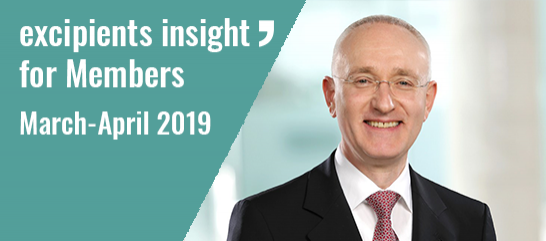
Dear IPEC Europe members,
Welcome to our spring edition of Excipients Insight and it’s hard to believe we’re one quarter down in 2019 already! It has been a busy time with the Board and several committees convening to plan and begin the work programmes for this year. In this issue, some of the highlights of these meetings are presented and if these raise any questions in your mind or spark your interest, then please don’t hesitate to get in touch for more details via info@ipec-europe.org
Meanwhile, as some ongoing projects come to fruition, I sense we’re on the edge of a very exciting period of activity. Our initiatives on a master file system for novel excipients in Europe are attracting interest. Our position paper on this matter is set for publication and we hope that we can use this to engage with other associations who can see the value of having such a process. As with most things, now that something is starting to happen, we need to keep the momentum going and make the most of this opportunity.
The regulatory world too, is ‘hotting up’ in Europe. Several EMA consultation documents are being processed through our Quality & Regulatory Affairs Committee. The team also considers the ECHA (European Chemical Association) proposals to restrict placing on the market intentionally added microplastics in consumer or professional use products of any kind. This specific document highlights once more the need for us to look at regulations beyond pharma because of the potential impact on the supply and safe use of pharmaceutical excipients. As we know, excipients used pharmaceutically are generally not exclusive to the pharmaceutical industry so restrictions in other sectors can hit our world. Likewise, the very recent announcement in France on restricting the use of Titanium Dioxide E171 in foods will make an impact elsewhere no doubt so we need to keep informed of events and act accordingly.
As you might have noticed in the top banner, Excipients Insight becomes a members-only newsletter.
The News section on our public website will host a selection of articles from Excipients Insight accessible for members and non-members.
If you don’t receive Excipients Insight in your mailbox yet, make sure to sign up on our website – or write an e-mail to the Secretariat (info@ipec-europe.org).
To wrap up, I’d like to mention that in few days we’ll be attending our first exhibition of the year with our third appearance at Making Pharmaceuticals in Coventry, UK. IPEC Europe will be making three presentations on current excipient topics as well as welcoming existing and hopefully some new members at our stand. Please come to say ‘hello’ to the IPEC Europe Team if you’re there.
Don’t forget to mark your calendar for this year’s IPEC Europe Excipient Conference in Vienna on 24 and 25 September 2019, co-organised with APV.
The program provides a very good mix of regulatory and technical topics around excipients, and will feature three “practical sessions” to achieve compliance using IPEC Guidelines.
Until next time,
Frithjof Holtz
IPEC Europe Chair
IPEC committees, activities aplenty!
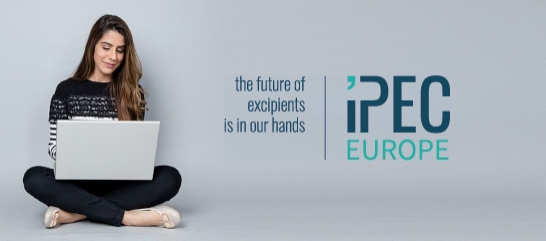
Good Distribution Practices Committee
Darmstadt welcomed the second Good Distribution Practices (GDP) Committee meeting of the year on April 2-3, with revision of the 2011 IPEC GDP Audit Guide for Pharmaceutical Excipients as the main topic of discussion. Review of chapters is ongoing and the committee has agreed to finalise the first phase of the revision process by the end of April, aiming to finalise the revision by July 2020.
The next committee meetings will be held via conference calls on 24 April and 20 May.
For further information please contact the Secretariat.
Quality and Regulatory Affairs Committee
Fifteen Quality & Regulatory Affairs Committee (QRAC) members met in Brussels on 2 April, with many more joining online, to review and progress the many initiatives under the responsibility of this group. Objectives defined and approved at the 2019 Annual General Meeting in Malta were reviewed and assigned.
Of the main themes discussed, some time was devoted to discuss the ECHA draft regulations on the restriction of microplastics. While pharmaceutical excipients are not in the scope of this draft legislation, definitions could indirectly include materials used in pharmaceutical applications. This legislation could therefore potentially restrict the supply of some plastics with consequences to the supply of medicines as alternatives may not be readily substituted. The Committee will collect comments and make a formal response.
The Committee also reviewed open European consultations and will investigate with relevant members if changes to labelling requirement for certain excipients (dextrans, lactose, polysorbates) in medicinal products are a matter of concern.
It’s always good to inform members when activities are completed and, on this occasion, it was great to hear that the IPEC Europe Board endorsed the Position document for Primary Packaging Materials used for excipients, the Position paper on the Excipient Master File and the Stimulus article. Thank you to all contributors for their efforts.
The other subjects discussed are listed in the agenda on the Member’s Lab and the minutes of this and other QRAC meetings can be found there, too. If you have any questions on any matter or want to suggest other areas of focus for QRAC, please contact the Secretariat.
The next committee meeting for the QRAC Core Team will be held in Brussels on 9 July.
IPEC Federation Position Paper: Atypical actives
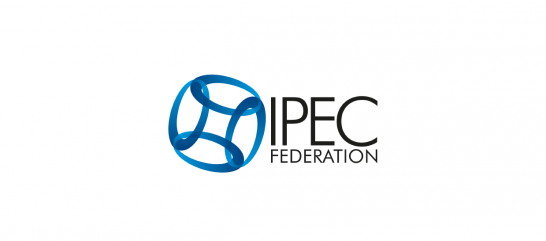
The IPEC Federation has issued a position paper titled Good Manufacturing Practices for Atypical Actives. The purpose of the paper is to advocate for appropriate GMP for certain materials used as atypical actives in drug products based on risk assessment, rather than ICH Q7 GMP compliance or its equivalent.
A general background regarding the differences between Atypical Actives and Active Pharmaceutical Ingredients (APIs) is included, along with their typical characteristics and the various uses of these materials. Current regulatory perspectives on this subject from the European Union, United States, Canada and Brazil are provided. The paper proposes that a harmonized approach should be established across global regions outlining key principles manufacturers, users, as well as regulatory bodies and compendia should use when addressing this topic.
Download the position paper
EXCiPACT updates

The new Board met for the first time on 9 April in Brussels with Iain Moore of IPEC Europe as President, Dale Carter of IPEC-Americas as Vice-Preisdent by phone and Sylvain Bougoin of FECC as Treasurer. Alain Becart, Quality Manager and Tony Scott, Senior Adviser also attended. There was a good discussion on a range of relevant topics and the following KPIs were noted: 90+ certifications, 25 auditors with several more ready to be witnessed before final approval.
We are now providing regular 2-day auditor training courses, and for others, 1-day general awareness courses and half-day, free-to-attend educational seminars. Please see the Training page on our website for the latest details. Our first 1-day seminar in Europe was held on 20 March in Frankfurt. As it was very well received by the 30+ delegates and oversubscribed, we are considering a repeat seminar later this year in Frankfurt. The next seminar in Europe is in Coventry, UK on Monday 29 April, the afternoon before the Making Pharmaceuticals UK event. It's not too late to register at info@excipact.org. A similar seminar will be held in China on 19 April in Shanghai and a Spanish seminar in Barcelona in November hosted by AENOR.
We are speaking at two US events in May. Excipient World in Maryland on 6-8 May (Dale Carter & SGS N America) and the NJPQCA New Jersey Product Quality Control Association-FDA meeting on 14 May in Whippany, NJ (Dale Carter, Iain Moore & David Klug). Full details can be found on the EXCiPACT website.
India: domestically produced drugs preferred for public procurement
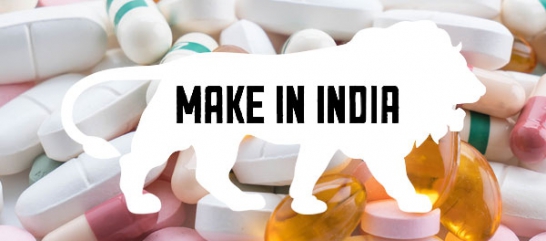
IPEC India signalled that the Indian government, including state and local entities, will give preference to local suppliers of pharmaceutical formulations for public procurement programmes. This five-year plan is in line with the objectives of the overarching “Make in India” programme, aimed at promoting manufacturing and production of goods and services in India.
The Department of Pharmaceuticals said that the minimum local content for formulations that are not manufactured in India shall be 10 per cent in 2018-19. This quota will gradually increase to up to 30 per cent in 2023-25 for the formulations not manufactured in the country.
For pharmaceutical formulations manufactured in India, the minimum local content will be 75 per cent in 2018-19 and will reach 90 per cent during 2023-25, the order said.
For further information contact the IPEC Federation Secretariat.
Picture credits: Express Pharma
IPEC Europe at Making Pharmaceuticals UK
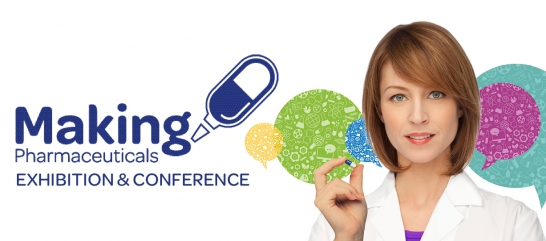
As in previous years, IPEC Europe will be at Making Pharmaceuticals UK, a well-established conference for the pharmaceutical industry. We will be at the Ricoh Arena in Coventry on 30 April and 1 May with a stand on the exhibition floor, shared with EXCiPACT, and will be represented by IPEC Europe Board member Dr Liz Meehan, Senior Advisor Adrian Bone and Junior Communication Manager Stefano Luppino.
IPEC Europe contributes to the conference programme through IPEC Europe Board member Dr Liz Meehan, EXCiPACT President Dr Iain Moore and Ian McKeown (PQG), who will present over topics such as the Excipient Master File System in Europe, Atypical Active Substances and IPEC/PQG GMP Guide
Don’t forget to register: visit www.makingpharma.com.
First call for the 2019 IPEC Europe Excipient Conference
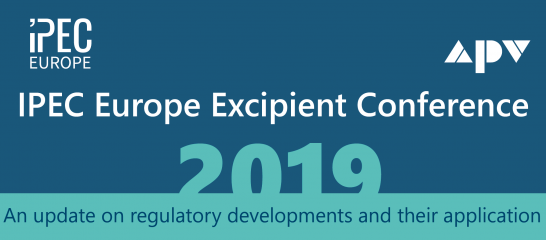
IPEC Europe and APV are delighted to invite you once again to the conference on pharmaceutical excipients, which will take place in Vienna, Austria on 24-25 September.
The conference will focus on regulatory guidelines relating to pharmaceutical excipients and technology.
As part of the programme we will offer “practical sessions” to provide detailed information about current IPEC Guidelines supporting industry to comply with regulatory requirements and other expectations. Three of these “practical sessions” will be held for 2 times in parallel to allow participants to attend 2 of the 3 sessions. These sessions will focus on the content of the IPEC Guidelines and provide practical examples to facilitate implementation in a company’s quality system. Participants will learn how to use the guides in daily work and can discuss with the speakers about their personal experience.
We will open the technical and scientific session of the conference with two compendial topics presented by EDQM and USP.
The remaining of the session will focus on the application of the excipients and the new findings in key areas such as pediatrics, solid dispersions as well as taste masking.
We will also have an opportunity to hear an overview on the evolving landscape of the pharmaceutical industry.
Last but not least networking and exchange of information is a key feature of the event and table-top exhibitions aligned to the conference will encourage communication between suppliers and users.
We are looking forward to welcoming you in Vienna.
OBJECTIVES
The primary goal of the conference is to highlight current hot topics in the field of pharmaceutical excipients.
Take opportunity to share your experiences and discuss with colleagues of pharmaceutical industry, academics, authorities as well as with manufacturer and distributors of pharmaceutical excipients.
This year again, we offer you to arrange your individual conference focus by choosing 2 of our three practical sessions on the first day.
You will learn how to achieve compliance for excipients by using the IPEC Guides for:
- Co-processed Excipients
- GDP for Pharmaceutical Excipients and
- Technically Unavoidable Particle Profile (TUPP)
- Futher hot topics of the conference in this year will be:
- The IPEC-PQG Good Manufacturing Practices Guide
- The IPEC Significant Change Guide
- Comparison of GMP Standards
- The use of harmonised alternative methods:
- The EDQM view
- The USP view
- The Pharmaceutical excipient market today
- The role of excipients in:
- Paediatric formulations and
- Amorphous solid dispersions
- Drug- and market-related implications on formulation and manufacturing of amorphous solid dispersions
- Taste-masking approaches for bad tasting drugs
For more details and to register, click here
Calendar
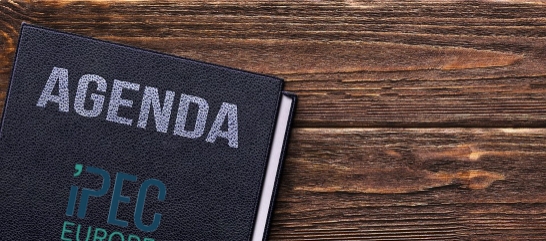
| Group |
Q2 2019 |
| IPEC Europe Board |
26 June, Brussels, Belgium |
| Good Distribution Practices Committee |
24 April and 20 May, TC |
| Quality & Regulatory Affairs Committee |
9 July, Brussels, Belgium |
France bans E171 as food additive from 2020

On 17 April, the French government announced that titanium dioxide (TiO2) will be suspended as a food additive (E171) from 1 January 2020. The Ministries of Finance and Ecology informed that a "decree suspending the sale of food products" containing titanium dioxide had been signed and would be published soon. Once published, France will notify the European Commission and the other EU member states.
This decision follows the publication on 15 April of the report from the Agence Nationale de Sécurité Sanitaire de l’Alimentation, de l’Environnement et du Travail (ANSES). In February 2019, the Agency was requested to review the risks associated with titanium dioxide used the colouring agent in food prodcuts (e.g. confectionery, chewing gums, biscuits, ready meals). The information gathered by the Agency did “not allow to remove the uncertainties concerning the safety of the additive E171” and “no acceptable daily intake could be set for this additive due to lack of data”. In conclusion, the ANSES recommeded to apply the precautionary principle regarding the use of titanium dioxid.
This suspension will be limited to the food products that contain titanium dioxide as a food additive (E171) and that are manufactured in or imported to France. This measure will not apply to the drugs and cosmetic products for now.
USP calls for volunteers for 2020-2025 term
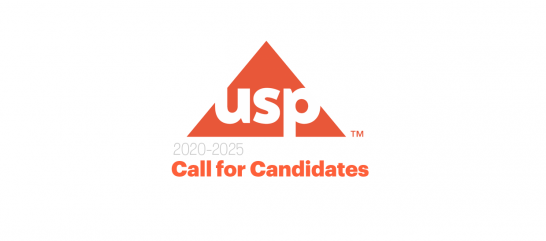
The US Pharmacopeial Convention (USP) announced the Call for Candidates for the 2020-2025 term.
Every five years, USP invites qualified candidates - pharmaceutical scientists, academicians, regulatory professionals, healthcare practitioners, and others who work with medicines and foods - to apply to serve as scientific decision makers on its Council of Experts and Expert Committees.
Throughout the five year cycle, USP also invites qualified candidates to serve as advisors on its Expert Panels that make recommendations to Expert Committees.
Volunteer applications are now being accepted for USP’s 2020-2025 Council of Experts and Expert Committees. The activities for the 2020-2025 Call for Candidates will begin in July 2019, with different deadlines according to the position applied. Applications for Chair positions will close on 9 January 2020 while prospective Expert Committees members can apply until 8 May 2020.
For further information visit the website https://callforcandidates.usp.org
Switzerland harmonises GMP/GDP procedures with Europe
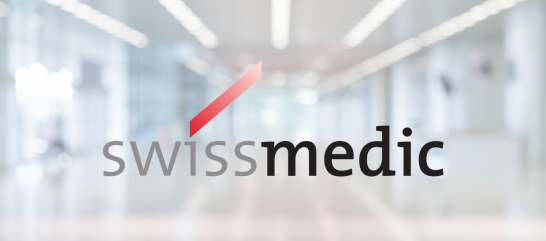
Many interesting GMP/GDP changes entered into force in the Swiss regulatory framework as of 1 January 2019.
Switzerland to enter information on Good manufacturing practice through EMA database
Swissmedic is now entering information on GMP inspections and manufacturing authorisations for Swiss manufacturers into the European Union’s EudraGMDP database, including all new or renewed authorisations and the associated GMP certificates. This procedure substitutes the issue of paper documents and allows for easier information-sharing between different stakeholders.
Swissmedic has “read and write” access to the database and will be entering GMP compliance information on local manufacturers. This development is part of the latest update of the mutual recognition agreement (MRA) between the EU and Switzerland, which introduced the provisions on data entry to the EMA database by the Swiss authorities.
The “read and write” access to the EudraGMDP database is offered by EMA to the regulatory authorities of all countries with which the EU has an MRA, such as Japan.
Revised Therapeutic Products Act (HMG)
The revised Swiss Therapeutic Products Act (HMG 2) and implementing ordinances (Therapeutic Products Ordinance Package IV), in force as of 1 January, includes several changes aimed at further harmonising the Swiss system with the EU system.
Changes include the following areas, among others: the position of the Responsible Person (RP) in the company, the differentiation between market release and technical release, the possible restriction or revocation for authorised activities if not exercised for more than one year, the additional due diligence obligations when placing manufacturing orders by trading companies, the extension of the authorisation requirement to brokers and agents.
The revision includes also a new “Do and Tell” procedure for IA and IAIN modifications. Declarations a posteriori shall be submitted for minor variations with a minimal impact on the quality, safety or efficacy of the medicinal product. For minor type IB variations, a prior notice shall be submitted. Changes have an impact on Procedure II variations and authorisation extensions.
Presentations from the information events are available on the Swissmedic website.
Call for experts: join the Ph. Eur. network
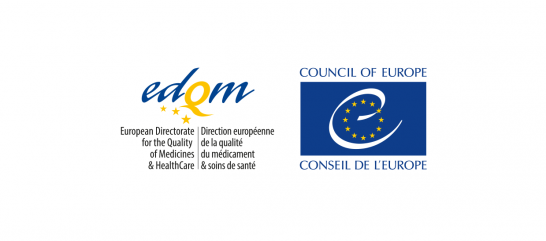
The European Directorate for the Quality of Medicines & HealthCare (EDQM) renews its call for expressions of interest to join the European Pharmacopoeia (Ph. Eur.) as an independent scientific expert.
Professionals from national authorities (e.g. pharmacopoeial authorities, official medicines control laboratories, licensing authorities and inspectorates), the private sector (pharmaceutical or chemical industries), academia, research organisations and other experts are encouraged to apply.
This is an ideal opportunity to take part in the work of the Ph. Eur., to network with professionals with various backgrounds and from all over Europe and beyond, and to help shape Ph. Eur. texts, internationally-recognised quality standards for medicines.
Potential candidates from Ph. Eur. Member States are invited to contact their National Pharmacopoeia Authorities, while potential candidates from non-Ph. Eur. member states are invited to check that their profile fulfils the criteria.
Applications will be examined by the Ph. Eur. Commission at its 165th session (26-27 November 2019) when all Ph. Eur. Groups of Experts and Working Parties will be (re)appointed.
The EDQM will inform candidates from non-European Pharmacopoeia member states of the decision of the Commission in December 2019. Candidates from Ph.Eur. member states will receive feed-back from their respective National Pharmacopoeia Authorities.
Detailed informations are available in the section “Join the Network” of the EDQM website.
Recommended readings

The ICH Q3D(R1) Guideline reaches Step 4 of the ICH Process
The ICH published the final version of the ICH Q3D(R1) Guideline for Elemental Impurities in March after its adoption by the Regulatory Members of the ICH Assembly. This is a quality guideline for the control of elemental impurities in new drug products (medicinal products), and it establishes Permitted Daily Exposures (PDEs) for 24 Elemental Impurities (EIs) for drug products administered by the oral, parenteral and inhalation routes of administration. The Q3D(R1) Guideline is the result of a revision of the PDE level for Cadmium by inhalation in the Q3D Guideline.
Download the guideline here
Source
EMA – EDQM: Sampling and testing programme
The European Medicines Agency (EMA) and the European Directorate for the Quality of Medicines & Healthcare (EDQM) have reviewed EMA’s sampling and testing programme for centrally authorised medicines on the EU/EEA market, which has been organised yearly since 1998.
Source
Events

Here is a round-up of forthcoming events of interest to suppliers and users of excipients. Please let the IPEC Europe Secretariat know if we've missed one.
5th Annual Formulation & Drug Delivery Congress
London, United Kingdom - 29-30 April 2019
More information here
Making Pharmaceuticals Exhibition and Conference
Coventry, United Kingdom - 30 April – 1 May 2019
More information here
2019 Excipient World Conference & Expo
Washington DC Metro area - 6-8 May 2019
More information here
RAPS Regulatory Conference Europe 2019
Brussels, Belgium - 13-14 May 2019
More information here
2nd Annual PDA Conference on International Developments in the Pharmacopoeial Landscape
Geneva, Switzerland - 16-17 May 2019
More information here
NJPQCA New Jersey Product Quality Control Association-FDA meeting
Whippany (NJ), United States - 14 May 2019
More information here
GMP meets Regulatory Affairs
Barcelona, Spain - 19-20 June 2019
More information here
8th European GMP Conference
Heidelberg, Germany - 6-7 June 2019
More information here
International Conference on the ‘EDQM & European Pharmacopoeia: State-of-the-Art Science for Tomorrow’s Medicines’
Strasbourg, France - 19-20 June 2019
More information here
11th EUPFI Conference
Malmoe, Sweden - 10-11 September 2019
More information here
Making Pharmaceuticals Italia Exhibition and Conference
Milan, Italy - 18-19 September 2019
More information here
IPEC Europe Excipient Conference 2019
Vienna, Austria - 24-25 September 2019
More information here
22nd APIC-CEFIC European Conference on Active Pharmaceutical Ingredients
Prague, Czechia - 23-25 October 2019
More information here
CPhI Worldwide
Frankfurt, Germany - 5-7 November 2019
More information here
Qualified Person Forum 2019
Munich, Germany - 28-29 November 2019
More information here
|